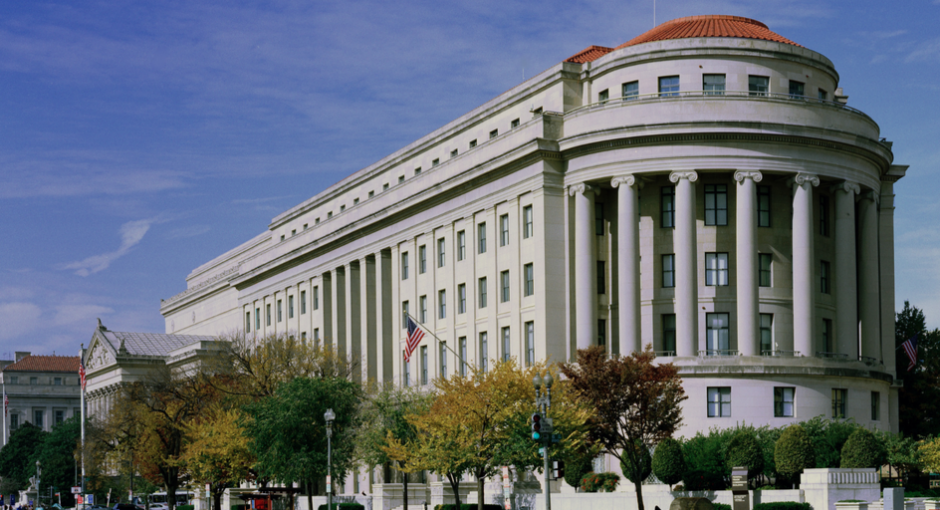Pharmacy benefit managers’ discriminatory business practices against 340B hospitals boost PBMs’ financial bottom lines while hurting the hospitals’ mission to serve vulnerable patients, groups that represent or work with 340B hospitals and their pharmacists recently told the Federal Trade Commission (FTC).
The American Hospital Association (AHA), hospital group 340B Health, American Society of Health-System Pharmacists (ASHP), National Rural Health Association (NRHA), and group purchasing organization Premierraised the 340B program in letters to the FTC.
Non-hospital commenters also addressed PBM discrimination against 340B entities in their letters to the FTC, including Ryan White Clinics for 340B Access (RWC-340B). 340B Report previously reported on RWC-340B’s comments.
FTC’s Request for Comments
The commission in February invited the public to comment on how PBM practices such as drug payments, formulary and network management, and drug rebates might impact patient care and increase healthcare costs. The comment period closed May 25. The commission received more than 24,000 letters. The comments could culminate in an FTC formal investigation into PBMs.
340B Health encouraged the FTC to investigate PBMs’ business practices “because of the serious impact on 340B providers, pharmacies, and patients.”
Premier urged the FTC to launch a formal investigation of PBMs, citing “serious concerns that a lack of transparency and oversight of PBM practices has resulted in several negative consequences for patients and stifled competition.”
AHA Comments
“Rather than supporting 340B hospitals and their patients, PBMs have engaged in a number of harmful tactics to reduce the scope and benefits of the program,” AHA told the FTC.
AHA cited PBMs’ practice of forcing 340B hospitals to accept unfair contract terms such as lower reimbursement rates than those offered to other hospitals in order to join the PBM’s network.
“While some states have explicitly prohibited 340B discriminatory pricing by PBMs, this practice as well as their other harmful policies remain prevalent in many parts of the country and continue to enrich PBMs at the expense of 340B hospitals,” the AHA said.
Maryland last week became the latest state to pass legislation prohibiting PBM discrimination against 340B covered entities, joining 20 other states in adopting such laws since 2019.
The AHA also blasted PBM “white bagging” and “brown bagging” policies that keep patients from using hospitals’ own or contracted pharmacies. “We believe one of the most significant challenges patients and providers face as it relates to PBMs is the steering of patients to third-party specialty pharmacies to acquire medication necessary for clinician-administered treatments,” AHA said.
Other Groups’ Comments
Others that wrote to the FTC raised additional criticisms of PBMs’ 340B-related policies.
340B Health noted PBMs’ differing treatment of 340B providers by “imposing burdensome 340B claim identification requirements … Several large PBMs require providers and pharmacies to identify use of 340B discounted drugs when submitting a claim for reimbursement, which is significantly challenging and, in some cases, impossible to do.” 340B Health noted that point-of-sale claim identification can be especially difficult for contract pharmacies.
NRHA said PBMs’ direct or indirect remuneration fees can make it harder for rural hospitals to operate. “PBMs are hitting pharmacies with extremely high claw backs, like a surprise bill, that force pharmacies to provide drugs below cost, and jeopardize their solvency,” the association said.
“PBMs and their affiliated insurers leverage their market position to selectively underpay safety-net providers that participate in the 340B drug pricing program,” ASHP told the commission. “The 340B program was created to provide resources to hospitals and health systems serving the most vulnerable populations. Yet PBMs and insurers capture these resources by using their market power to extract targeted price concessions specifically from providers participating in the 340B program. As a result, funding that Congress intended as a support for providers is siphoned off by PBMs, damaging patient access to programs and services that are supported by 340B savings.”


